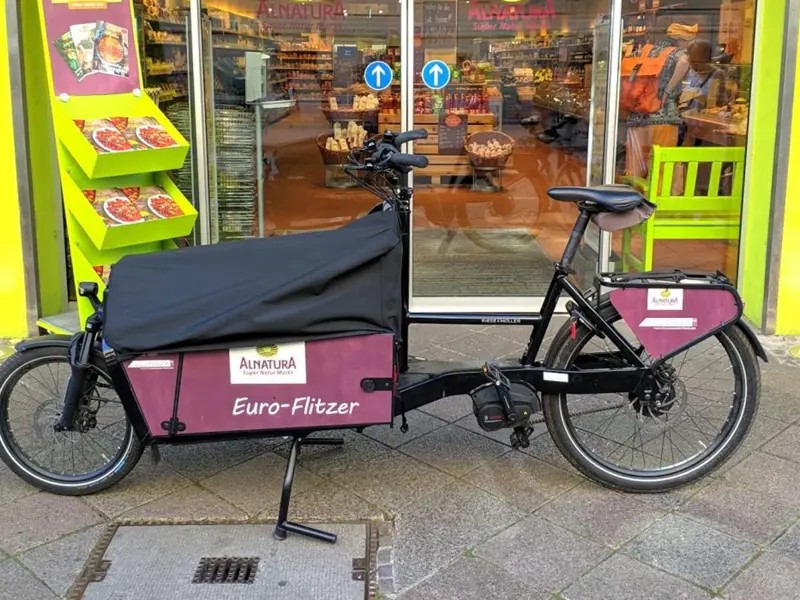A new European research project will investigate how shared and electric cargo bikes can help reduce private car use in several European cities, including Gothenburg, Mölndal and Trollhättan.
“This project will help accelerate transitions to low carbon mobility in small, medium and large size cities,” says Devon McAslan, researcher in sustainable transport and mobility at Chalmers.
The project, Car-goNE City, contributes to sustainable mobility transitions by exploring how shared and electric cargo bikes can supplement and even replace private car use, increase access to different activities and shopping in more car dependent neighborhoods, and help lower transportation costs.
The project is part of the Driving Urban Transitions partnership focused on the "15-minute city" transition pathway, which aims to rethink existing mobility systems and urban development to enable more sustainable transportation choices.

Car-goNE-City will use a series of participatory approaches that engage citizens directly in the planning, design, implementation, and evaluation of shared cargo bike mobility. The specific goals of the project include:
- studying time-based accessibility of 15-minute cities by developing innovative methods that incorporate shared mobility;
- understanding the potential for shared cargo bike mobility to reduce car use and its interactions within multi-modal transport systems;
- engaging residents in participatory design of shared mobility using digital participation methods, gamification, pilot projects, and living labs;
- and identifying effective approaches for accelerating shared mobility implementation.
Cities involved include Gothenburg, Mölndal, Trollhättan (Sweden), Olso (Norway), Karlsruhe and Konstanz (Germany), and Budapest (Hungary).
Will support cities in their transport planning and environmental work
Car-goNE City focuses on engagement with decision makers and will provide research that supports cities in their work. Public sector partners will benefit from the applied research approaches, development of new metrics, and new participation tools. Car-goNE City will contribute to research on the mobility impacts and acceptance of cargo bikes as a transportation solution to reduce car use and associated environmental impacts.
“Most importantly, the project focuses on implementation challenges and will help accelerate low carbon mobility transitions. We will do this by developing ‘transition pathways’ for small, medium and large European cities for active and car-reduced urban mobility and provide policy recommendations on the effective uses of shared cargo bike mobility to achieve sustainable mobility objectives”, says Devon McAslan, who will work in the project with colleague Frances Sprei, both at Physical Resource Theory, the Department of Space, Earth and Environment at Chalmers.
Among the partners in Sweden, their hope is to develop a long-term plan for shared cargo bike mobility that enables urban residents to be less car dependent. A main focus of the project in Sweden is on cargo bike pilot projects, which will take place in Mölndal and in Trollhӓttan and will explore how cargo bikes can reduce private car use, as well as the need to build parking in new housing developments.
European partnership
The project is a partnership with Oslo Metropolitan University, Budapest University of Technology, and Fraunhofer Institute for Systems and Innovation Research, as well as several municipalities, mobility operators, and technology companies. In Sweden, this includes project partners Trollhättans Stad, Kraftstaden, and Mölndalsbostäder, as well as Göteborgs Stad and Västtrafik as additional participants.
On the technology side, the start-up Metvibee will be participating to further develop an interactive participatory urban design tool. The project also includes German partner Takomat, which has developed the award winning MobileCityGame. Other participating public agencies include Stadt Konztanz in Germany and BKK transit agency in Budapest, Hungary. Lastly, the projects includes those developing cargo bike mobility solutions: TINK and Lastenkarle in Germany, and Whee! in Norway.
Contact
- Staff Scientist, Physical Resource Theory, Space, Earth and Environment
